News archive
On this page you can search for older news. Choose a topic, type of news or enter your own keyword to filter out news.
View compact
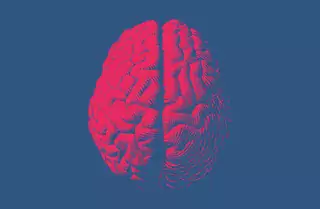
Researchers at Karolinska Institutet have developed a detailed molecular atlas of the fetal development of the brain. The study published in the top journal Nature is based on so-called single-cell technology and has been done on mice. In this way, researchers have identified almost 800 different cells that are active during fetal development – many times more than previously known.
News
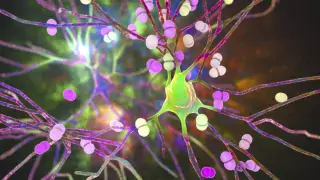
Researchers at Karolinska Institutet have discovered a mechanism through which meningitis-causing bacteria can evade our immune system. In laboratory tests, they found that Streptococcus pneumoniae and Haemophilus influenzae respond to increasing temperatures by producing safeguards that keep them from getting killed. This may prime their defenses against our immune system and increase their chances of survival, the researchers say. The findings are published in PLoS Pathogens.
News
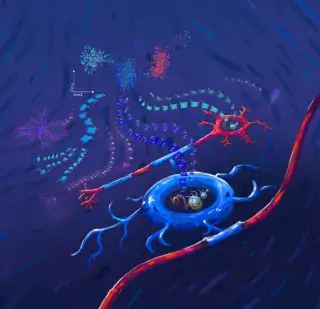
Histones are tiny proteins that bind to DNA and hold information that can help turn on or off individual genes. Researchers at Karolinska Institutet have developed a technique that makes it possible to examine how different versions of histones bind to the genome in tens of thousands of individual cells simultanously. The technique was applied to the mouse brain and can be used to study epigenetics at a single-cell level in other complex tissues. The study is published in Nature Biotechnology.
News

Igor Adameyko and Gonçalo Castelo-Branco have been awarded the Göran Gustafsson Prize 2021. The prize is awarded by the Royal Swedish Academy of Sciences and consists of a research grant of SEK 5.1 million each, spread over three years, with a personal prize of SEK 250,000.
News
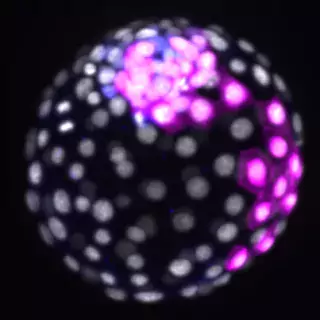
Stem cell research is the prerequisite for regenerative medicine, which with the help of the body's cells recreates and heals important organs. Now, researchers at Karolinska Institutet, SickKids in Canada and KU Leuven in Belgium have found a method for defining the most general type of stem cells, that can develop into all cell types in the body. The study of totipotent stem cells in mice has been published in Nature Cell Biology.
News

How the immune system adapts to pregnancies has puzzled scientists for decades. Now, findings from an international group of researchers, led by researchers at Karolinska Institutet in Sweden, reveal important changes that occur in the thymus to prevent miscarriages and gestational diabetes. The results are published in the journal Nature.
News
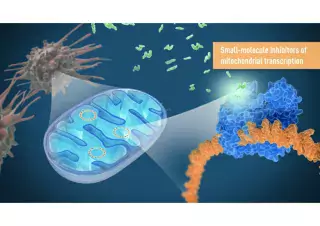
Researchers at Karolinska Institutet report in the journal Nature that they have developed novel first-in-class inhibitors that compromise mitochondrial function in cancer cells. Treatment with the inhibitors stopped cancer cells from proliferating and reduced tumour growth in mice, without significantly affecting healthy cells.
News
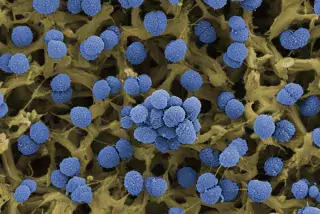
Researchers at Karolinska Institutet in Sweden have come one step closer toward understanding why some people become seriously ill or die from a common bacterium that leaves most people unharmed. In a study published in The Lancet Microbe, the researchers linked RNA mutations within the bacterium Neisseria meningitidis to invasive meningococcal disease, marking the first time a non-coding RNA in a bacterium has been linked to disease progression.
News
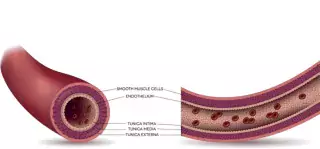
A new study from Karolinska Institutet and the Helmholtz Diabetes Research Center shows that primary cilia, hair-like protrusions on endothelial cells inside vessels, play an important role in the blood supply and delivery of glucose to the insulin-producing beta cells in the pancreatic islets. The findings are published in eLife and may be relevant for transplantation therapies in diabetes, as formation of functional blood vessels is important for the treatment to be successful.
News

Thirteen researchers connected to Karolinska Institutet are on the 2020 list of highly cited researchers presented by Clarivate, the company behind Web of Science.
News

We wish to congratulate Luca Jovine, Juha Kere, Janne Johansson and Eckardt Treuter at the Department of Biosciences and Nutrition, who have been awarded grants from the Swedish Research Council within the area of Medicine and Health as well as the area of Natural and Engineering Sciences for the years 2020-2024.
News
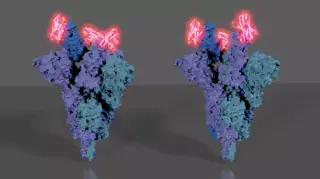
By screening hundreds of synthetic antibodies, researchers at Karolinska Institutet in Sweden and EMBL Hamburg in Germany have identified an antibody that may prevent the new coronavirus from infecting human cells. The study, which is published in the journal Nature Communications, also shows how antibodies can be quickly produced in the event of future pandemics.
News
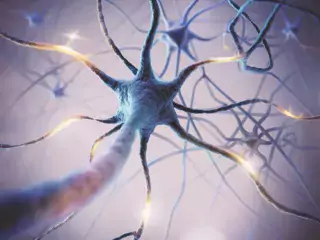
People with multiple sclerosis (MS) gradually develop increasing functional impairment. Researchers at Karolinska Institutet have now found a possible explanation for the progressive course of the disease in mice and how it can be reversed. The study, which is published in Science Immunology, can prove valuable to future treatments.
News

The Royal Swedish Academy of Sciences have decided to award the 2020 Nobel Prize in Chemistry to Emmanuelle Charpentier and Jennifer A. Doudna for the development of a method for genome editing. Here, KI researchers who uses the method in their own research comment on this year’s prize. “It’s what we’ve been waiting for,” says Fredrik Lanner.
News

A study published in Nature shows that a segment of DNA that causes their carriers to have an up to three times higher risk of developing severe COVID-19 is inherited from Neandertals. The study was conducted by researchers at Karolinska Institutet and Max Planck Institute for Evolutionary Anthropology.
News
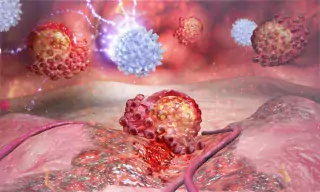
A type of anti-bacterial T cells, so-called MAIT cells, are strongly activated in people with moderate to severe COVID-19 disease, according to a study by researchers at Karolinska Institutet in Sweden that is published in the journal Science Immunology. The findings contribute to increased understanding about how our immune system responds against COVID-19 infection.
News
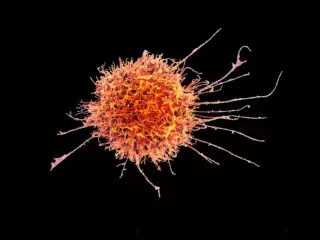
Researchers may have come one step closer toward understanding how the immune system contributes to severe COVID-19. In a study published in Science Immunology, researchers at Karolinska Institutet in Sweden show that so-called natural killer (NK) cells were strongly activated early after SARS-CoV-2 infection but that the type of activation differed in patients with moderate and severe COVID-19. The discovery contributes to our understanding of development of hyperinflammation in some patients.
News

The disease multiple sclerosis (MS) attacks the central nervous system and, with time, can give rise to muscle tremors and loss of balance. Researchers at Karolinska Institutet have now identified a gene, Gsta4, that protects a certain kind of cell in the brain from being destroyed. It is hoped that the results of the study, which is published in Nature Communications, can help to improve the treatment of this serious disease.
News
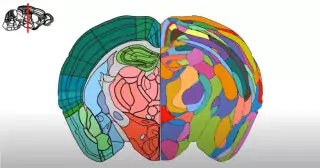
In a new study researchers at Karolinska Institutet and KTH Royal Institute of Technology have developed a new kind of brain atlas based on an innovative method of mapping brain tissue into areas according to their molecular profile. The study is published in Science Advances.
News

Knowledge of how human fat tissue is affected by age has long been defined by numerous mouse-based studies. Researchers at Karolinska Institutet in Sweden have now, for the first time, been able to conduct a prospective study on humans that provides novel insights into how our fat cells reduce lipid metabolism with age. The study is published in the journal Cell Metabolism.
News
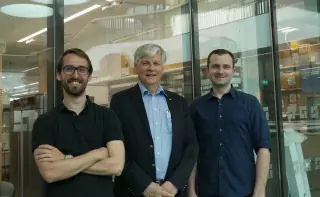
Researchers at Karolinska Institutet have discovered that excessive degradation of the power plants of our cells plays an important role in the onset of mitochondrial disease in children. These inherited metabolic disorders can have severe consequences such as brain dysfunction and neurological impairment. The study is published in EMBO Molecular Medicine.
News
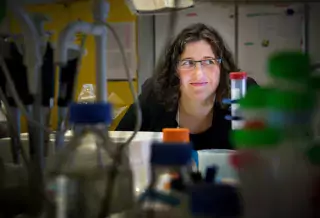
Research from Karolinska Institutet published today in Nature shows that an RNA molecule involved in preventing tumour formation can change its structure and thereby control protein production in the cell. The finding can have important clinical implications as it opens for new strategies to treat different types of cancer.
News

One in three women in Europe inherited the receptor for progesterone from Neandertals – a gene variant associated with increased fertility, fewer bleedings during early pregnancy and fewer miscarriages. This is according to a study published in Molecular Biology and Evolution by researchers at the Max Planck Institute for Evolutionary Anthropology in Germany and Karolinska Institutet in Sweden.
News
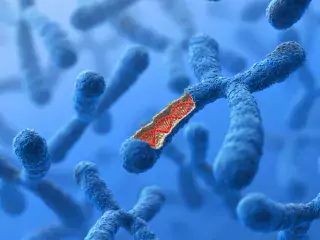
Researchers at Karolinska Institutet have developed a new sequencing method that makes it possible to map how DNA is spatially organised in the cell nucleus – revealing which genomic regions are at higher risk of mutation and DNA damage. The technique is described in an article published in the scientific journal Nature Biotechnology.
News
In a study recently published in Nature Methods, researchers from Karolinska Institutet and Oxford University have developed a method to identify molecules that are attached to proteins in the membrane.
News
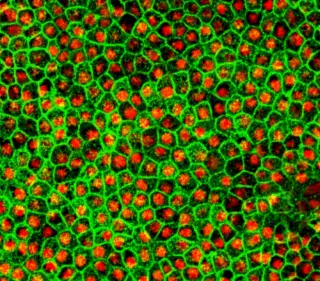
Researchers at Karolinska Institutet and St Erik Eye Hospital in Sweden have discovered a way to refine the production of retinal cells from embryonic stem cells for treating blindness in the elderly. Using the CRISPR/Cas9 gene editing, they have also managed to modify the cells so that they can hide from the immune system to prevent rejection. The studies are published in the scientific journals Nature Communications and Stem Cell Reports.
News
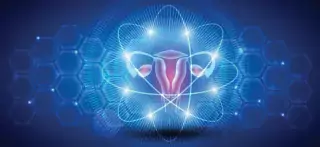
Researchers at Karolinska Institutet in Sweden have analysed all cell types in the human ovary and found that the hotly debated so-called egg stem cells do not exist. The results, published in Nature Communications, open the way for research on improved methods of treating involuntary childlessness.
News

Our skin protects us from physical injury, radiation and microbes, and at the same time produces hair and facilitates perspiration. Details of how skin cells manage such disparate tasks have so far remained elusive. Now, researchers at Karolinska Institutet in Sweden have systematically mapped skin cells and their genetic programs, creating a detailed molecular atlas of the skin in its complexity. The study is published today in the scientific journal Cell Stem Cell.
News
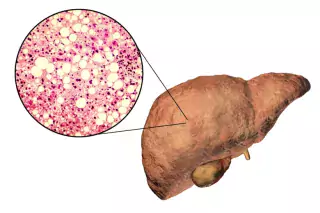
Researchers at Karolinska Institutet in Sweden have identified a molecular pathway that when silenced could restore the normal function of immune cells in people with fatty liver disease. The findings could lead to new strategies for treating the condition, which is a major health risk for people with obesity. The study is published in the scientific journal Science Translational Medicine.
News

When Human Immunodeficiency Virus Type 1 (HIV-1) infects a cell, the virus often becomes invisible to both the immune system and drugs. Now research from Karolinska Institutet shows that the integrated virus mimics a specific chromatin structure that lets the virus sequence remain accessible while preventing production of new viruses.
News
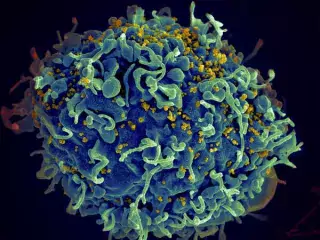
In a new study published in Nature Communications, researchers at Karolinska Institutet show that MAIT cells (mucosa-associated invariant T cells), part of the human immune system, respond with dynamic activity and reprogramming of gene expression during the initial phase of HIV infection. The study fills a knowledge gap, as previously there has been a lack of awareness of the function of MAIT cells during this particular phase.
News
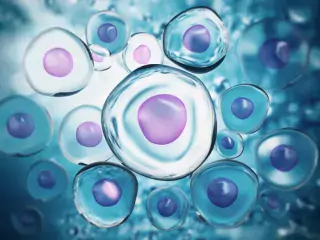
Using a trick involving detergent and mass spectrometry, a research group has been able to wash and weigh protein molecules to determine which lipids make the protein work. The findings may help design molecules that stick to individual membrane proteins and pave the way for the development of new drugs including antibiotics and cancer therapies. The study is published in Angewandte Chemie International Edition.
News

Researchers at Karolinska Institutet have come one step closer toward understanding how the part of our brain that is central for decision-making and the development of addiction is organized on a molecular level. In mouse models and with methods used for mapping cell types and brain tissue, the researchers were able to visualize the organization of different opioid-islands in striatum. Their spatiomolecular map, now in Cell Reports, may further our understanding of the brain’s reward-system.
News
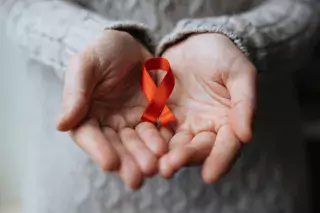
The search for a cure to AIDS has partly focused on ways to eradicate infected cells. Now, new research from Karolinska Institutet in Sweden and the University of Pennsylvania in the U.S. shows that this approach may not be necessary for a functional cure. In a study focusing on a subset of HIV-positive individuals who can live with the virus without needing treatment, the researchers found that these people’s lymphocytes suppress the virus but do not kill off infected cells.
News
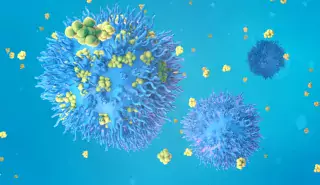
Researchers at Karolinska Institutet have developed a new method for identifying which proteins are affected by specific drugs. The tool and the results it has already generated have been made freely available online. The method is described in the scientific journal Nature Communications.
News

Six of the 29 new Wallenberg Academy Fellows appointed in 2019 will conduct their groundbreaking research at Karolinska Institutet. The five-year grant is financed by the Knut and Alice Wallenberg Foundation to provide the young and talented researcher leaders with long-term research funding in Sweden.
News

Researchers have long known that some genes can cause cancer when overactive, but exactly what happens inside the cell nucleus when the cancer grows has so far remained enigmatic. Now, researchers at Karolinska Institutet in Sweden have found a new mechanism that renders one canonical driver of cancer overactive. The findings, published in Nature Genetics, create conditions for brand new strategies to fight cancer.
News
Twelve researchers at Karolinska Institutet qualify for the annual list of highly cited researchers compiled by Web of Science.
News

Progeria is a very rare disease that affects about one in 18 million children and results in premature aging and death in adolescence from complications of cardiovascular disease. In a study on mice and human cells, researchers at Karolinska Institutet and IFOM, the FIRC Institute of Molecular Oncology in Italy, have identified how antisense oligonucleotide therapies could be used as a new possible treatment option for the disease. The results are published in Nature Communications.
News
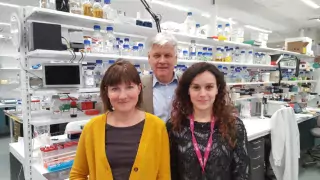
Researchers at Karolinska Institutet have developed a new research tool for studying how mitochondrial protein synthesis is affected by disease, pharmaceuticals, ageing and different physiological situations such as exercise and diet. The study is presented in the scientific journal Cell Reports.
News

People with atopic eczema have many more Staphylococcus aureus bacteria in their skin than those with healthy skin or psoriasis, according to a study by researchers at Karolinska Institutet in Sweden and the University of Helsinki in Finland. The study, published in the Nature Communications, shows how the S. aureus bacteria displaced other potentially health-promoting bacteria. The discovery may be important for future treatments of the skin disease.
News

Two research projects at Karolinska Institutet have been awarded synergy grants from the European Research Council (ERC). In total, the researchers and their international partners were awarded about EUR 19 million (SEK 209 million) over a six-year period for studies that aim to widen our understanding of disease-causing fat cells and unlock new cancer treatments.
News

Altogether SEK 170 million. This is this year's allocation from the European Commission under the funding programme for health in Horizon2020. A total of 20 research projects at Karolinska Institutet are being supported, three of them also coordinated from here: a survey of what we are exposed to in the environment; mapping of the brain's different nerve cells; and a project to bring down the mortality rate in childbirth in four African countries.
News
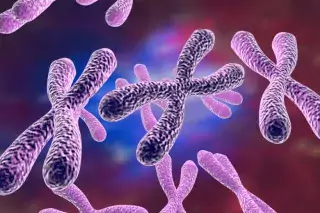
Researchers at Karolinska Institutet in Sweden have uncovered a chromosome-wide mechanism that keeps the gene expression of sex chromosomes in balance in our cells. The findings shed light on molecular reasons for early miscarriage and could be important for the emerging field of regenerative medicine. The study is published in Nature Structural and Molecular Biology.
News

Four research projects at Karolinska Institutet receive funding from the Knut and Alice Wallenberg Foundation (KAW) in the project call of 2019. In all, researchers at KI are awarded close to SEK 135 million over a five-year period for studies into MS, mitochondrial disease, and vaccine against rheumatism.
News
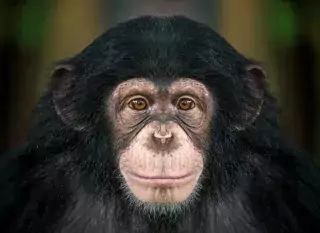
People – or more specifically just Swedes – are more like chimpanzees than previously known. This is indicated in a genetic mapping of one thousand Swedish individuals, where new DNA sequences that should be included in the reference genome have been identified. The study is published in the scientific journal Molecular Biology and Evolution.
News
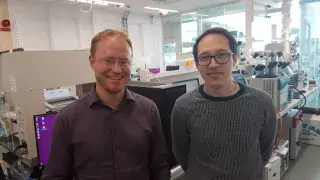
Researchers at Karolinska Institutet have, together with colleagues from Aalto University in Finland, developed a new method for creating images of molecules in cells or tissue samples. The method is based on the use of DNA snippets and is called DNA microscopy. The approach is currently described in the scientific journal PNAS.
News
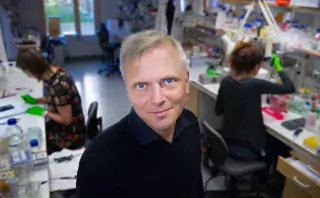
Researchers at Karolinska Institutet have discovered a new sensory receptor organ that is able to detect painful mechanical damage, such as pricks and impacts. The discovery is being published in the scientific journal Science.
News

Sten Linnarsson, professor of molecular systems biology at Karolinska Institutet, is trying to understand the development of the human brain. The Royal Swedish Academy of Sciences is now giving him this year’s Torsten Söderberg Academy Professorial Chair in Medicine for his work in achieving a detailed map of the human brain. The grant consists of SEK ten million over a five-year period.
News
Cells exposed to cancer-driving mutations respond by triggering a stress reaction called cellular senescence, which halts cell proliferation and thereby constitutes the major protective barrier to cancer. Researchers at Karolinska Institutet have now discovered a previously unknown signaling pathway that controls cellular senescence in breast cancer.
News
